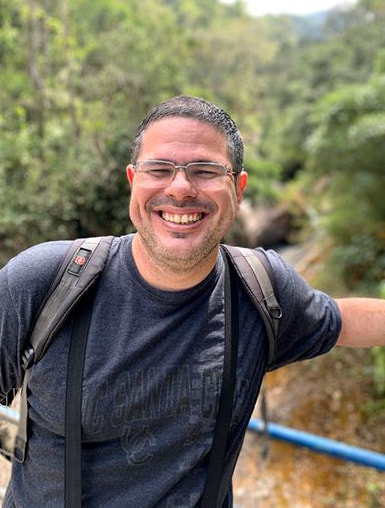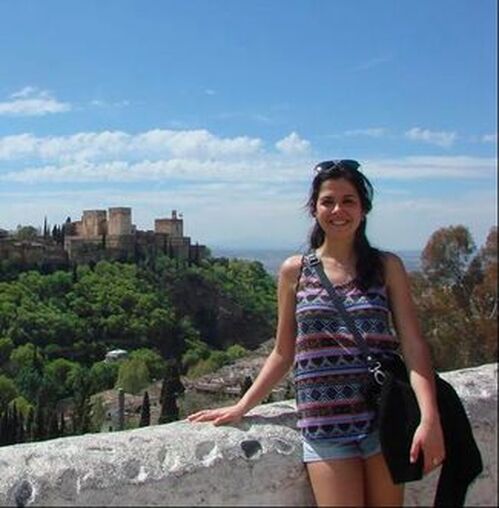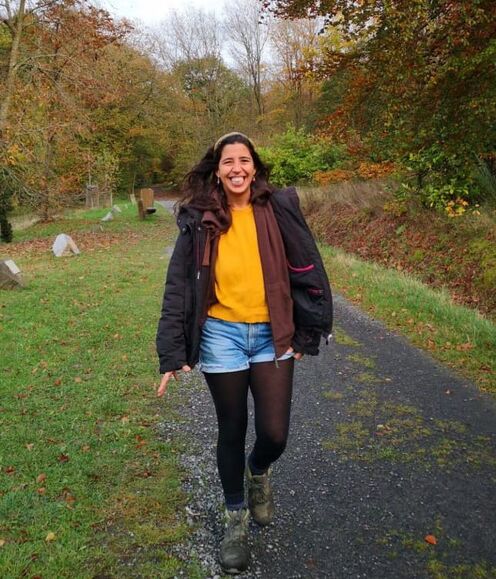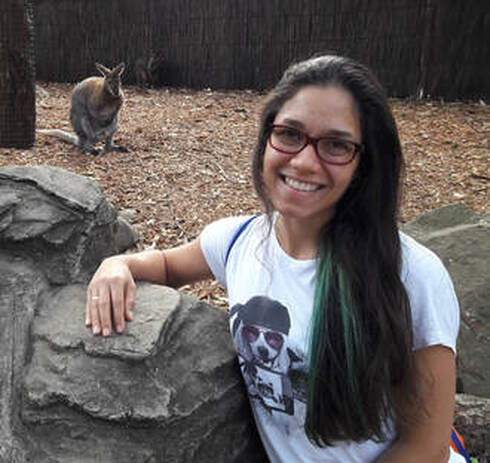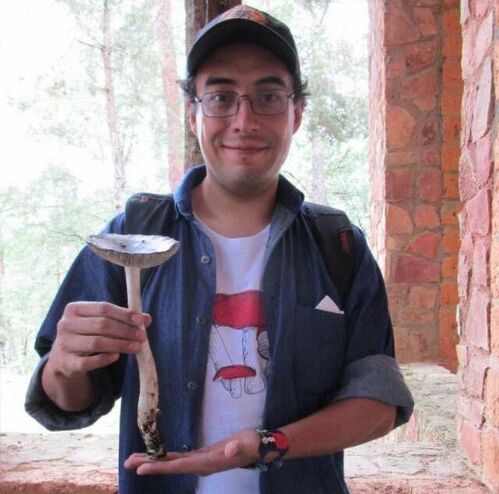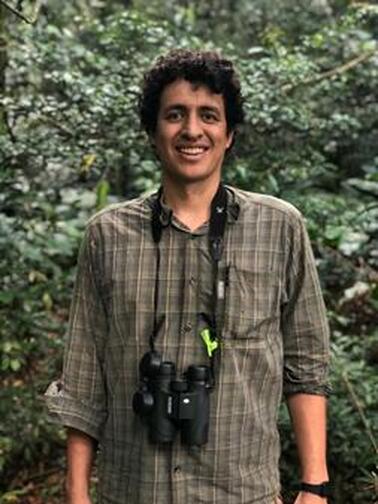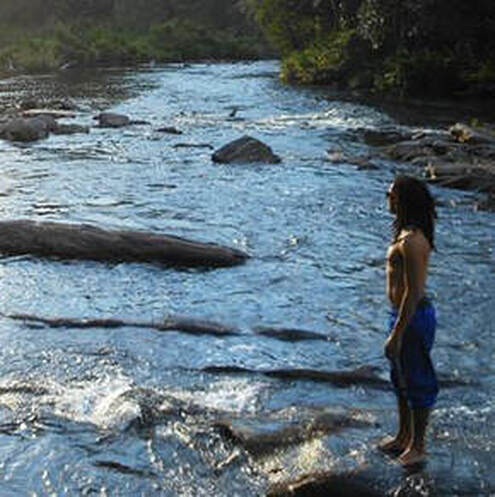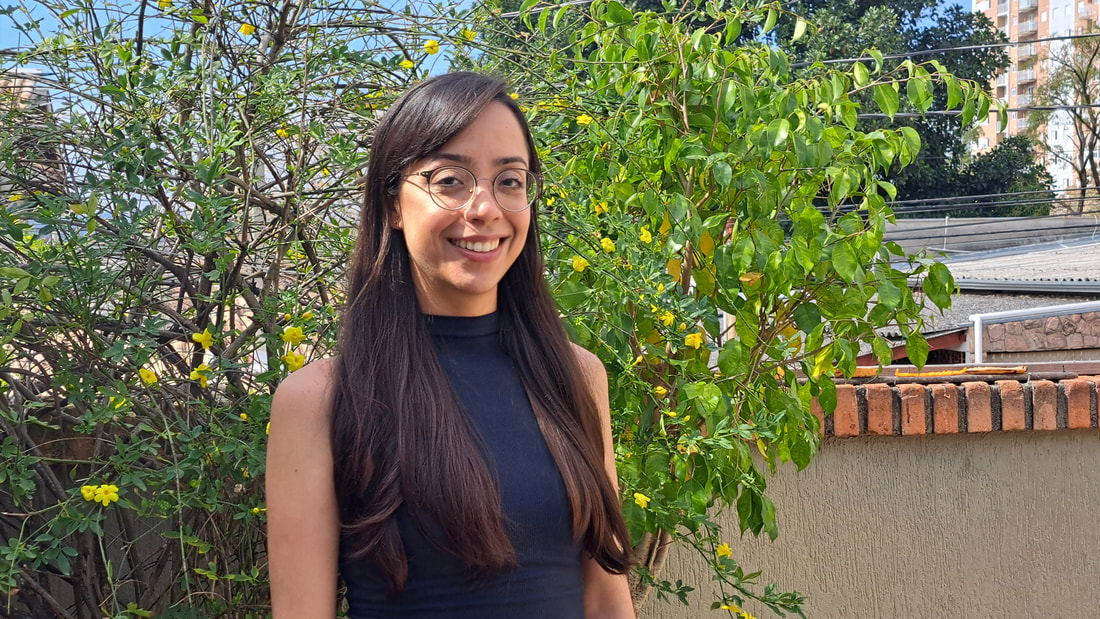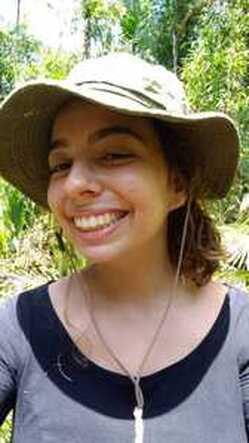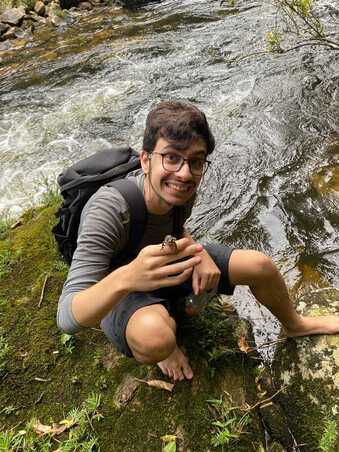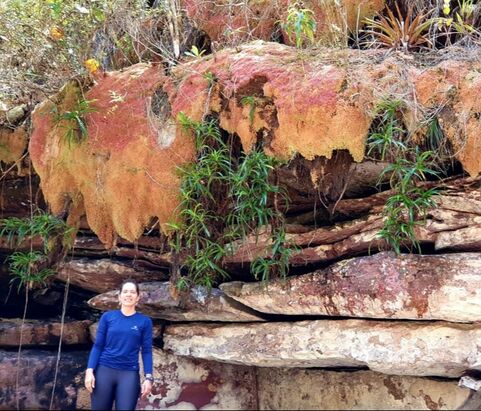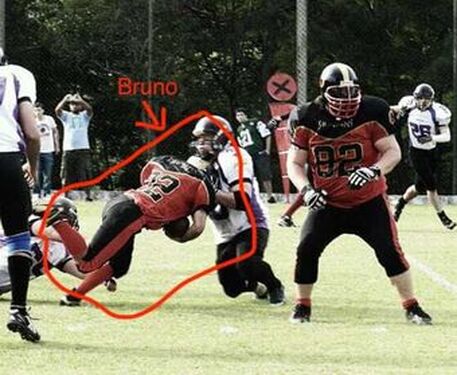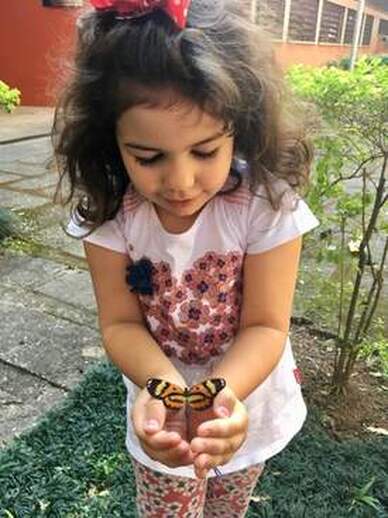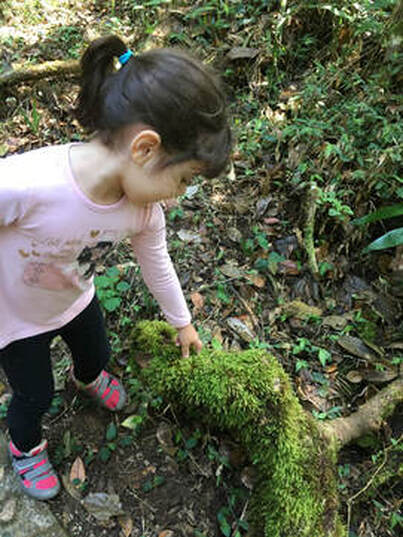Photo by Mathias M. Pires
Here you find information about our current lab members. After almost 15 years at USP I was lucky to have the opportunity to work with a special group of people. Information on former lab members is available here. Our lab also host undergraduate and visiting students, please click here.
|
Paulo R. Guimarães Jr. (Miúdo)
Full Professor at the Departamento de Ecologia, IB - USP Interests: how ecological networks shape and are shaped by ecological and coevolutionary processes. I explore this problem by integrating data and natural history of ecological interactions, network science, and mathematical modelling. Selected publications: Guimarães, P. R. 2020. The structure of ecological networks across levels of organization. Annual Review of Ecology, Evolution, and Systematics 51:433-460. Guimarães, P.R., M. M. Pires, P. Jordano, J. Bascompte, J. N. Thompson. 2017. Indirect effects drive coevolution in mutualistic networks. Nature 550: 511–514. Guimarães, P.R., P. Jordano, J. N. Thompson. 2011. Evolution and coevolution in mutualistic networks. Ecology Letters 14: 877-885 [PDF]. See also the article in Science highlighting this study: [Editors' Choice]. |
Postdocs
|
Kate Maia
Postdoc Interests: structural transitions in ecological networks Fellowship: FAPESP Selected publications: Maia, K. P., F. M. D. Marquitti, I. P. Vaughan, J. Memmott, R. L. G., Raimundo. 2021. Interaction generalisation and demographic feedbacks drive the resilience of plant-insect networks to extinctions. Journal of Animal Ecology. (in press). Maia, K. P., I. P. Vaughan, J Memmott. 2019. Plant species roles in pollination networks: an experimental approach. Oikos 128:1446-1457. Maia, K. P., C. Rasmussen, J. M. Olesen, P. R. Guimarães. 2019. Does the sociality of pollinators shape the organisation of pollination networks? Oikos 128: 741-752. |
|
Caroline Dracxler
Postdoc Interests: networks of antagonisms and mutualisms Fellowship: FAPESP Selected publications: Dracxler, C. M. & Kissling, W. D. 2021. The mutualism–antagonism continuum in Neotropical palm–frugivore interactions: from interaction outcomes to ecosystem dynamics. Biological Reviews (early view) Mittelman, P., Dracxler C. M., Santos-Coutinho, P. R. O. & Pires, A. S. 2021. Sowing forests: a synthesis of seed dispersal and predation by agoutis and their influence on plant communities. Biological Reviews 96: 2425-2445. |
|
Erika M. Santana
Postdoc (co-supervised by Carlos J. Melián, EAWAG, Switzerland) Interests: interface between social and ecological networks Fellowship: Schweizerische Nationalfonds (SNF, Switzerland) e CNPq Website |
|
Andrés Arguelles
Post-doc (co-supervised by Melanie Roy, France) Interests: fungi and ecological networks Fellowship: FAPESP/CNPq/NEFINEO Selected publications Argüelles-Moyao, A., Benítez, M., Escalante, A. E., & Garibay-Orijel, R. (2022). Unipartite and bipartite mycorrhizal networks of Abies religiosa forests: Incorporating network theory into applied ecology of conifer species and forest management. Ecological Complexity, 50, 101002. Argüelles-Moyao, A., & Garibay-Orijel, R. (2018). Ectomycorrhizal fungal communities in high mountain conifer forests in central Mexico and their potential use in the assisted migration of Abies religiosa. Mycorrhiza, 28(5-6), 509-521. Argüelles-Moyao, A., Garibay-Orijel, R., Márquez-Valdelamar, L. M., & Arellano-Torres, E. (2017). Clavulina-Membranomyces is the most important lineage within the highly diverse ectomycorrhizal fungal community of Abies religiosa. Mycorrhiza, 27, 53-65. |
Grad Students
|
Andrés Rojas
PhD student - Ecology (USP) MBA student - Data Science e Analytics (USP/ESALQ) Interests: networks of competitors Fellowship: CAPES Co-supervisor: Paulinha Assis Publications Rojas, A., D. G. Muniz, D. Solano-Brenes, G. Machado. 2021. Nest-site selection in a neotropical arachnid with exclusive male care: proximate cues and adaptive meaning. Ethology (in press). Rojas, A., D. Solano-Brenes, D. G. Muniz, G. Machado. 2019. Gone with the rain: negative effects of rainfall on male reproductive success in a nest-building arachnid. Behavioral Ecology 30: 1145-1156. |
|
Lucas Nascimento (Taio)
PhD student - Ecology (USP) MBA student - Data Science e Analytics (USP/ESALQ) Interests: frugivory and the evolution of color patterns in birds Fellowship: FAPESP Selected publications: Nascimento, L. F., P. R. Guimarães, R. E. Onstein, W. D. Kissling, M. M. Pires. 2020. Associated evolution of fruit size, fruit color and spines in Neotropical palms. Journal of Evolutionary Biology 33: 858-868. |
Undergrad Students
Technicians
|
Daniela Coelho (Dani)
Lab Technician (2023 - FAPESP) PhD in Ecology - USP (2022) Research: Network structure of snake-resource interactions Fellowship: CAPES (PhD) More about her work in our lab Pinto-Coelho, D., M. Martins, and P. R. Guimarães. Network analyses reveal the role of large snakes in connecting feeding guilds in a species-rich Amazonian snake community. Ecology and Evolution (in press). |
Special Guest Members
|
Alice
Alice joined the lab in 2012. Alice is interested in butterflies, toucans, flowers, hummingbirds, sacis, arts and science (especially Albert Einstein's ideas). She is now testing predictions of entropy-based theories, using her bedroom as studied system. |
